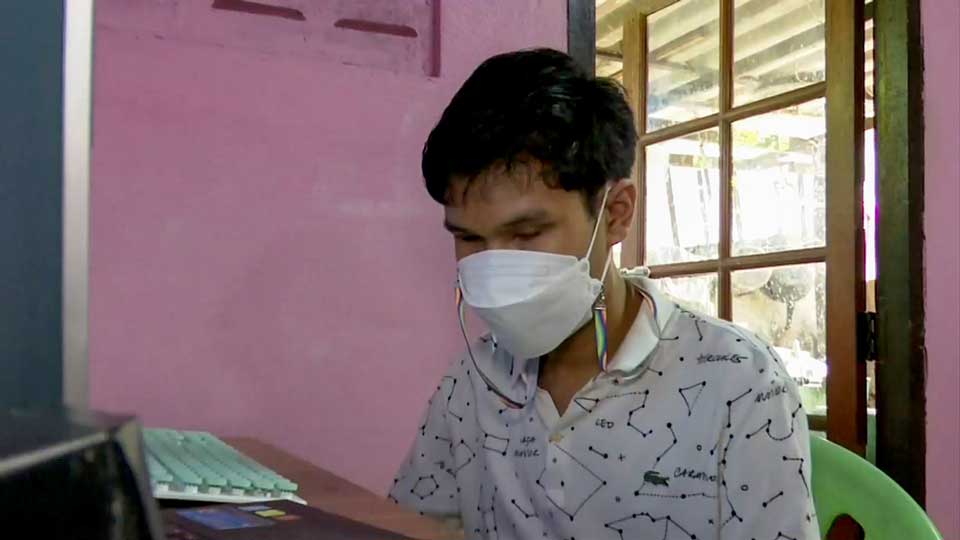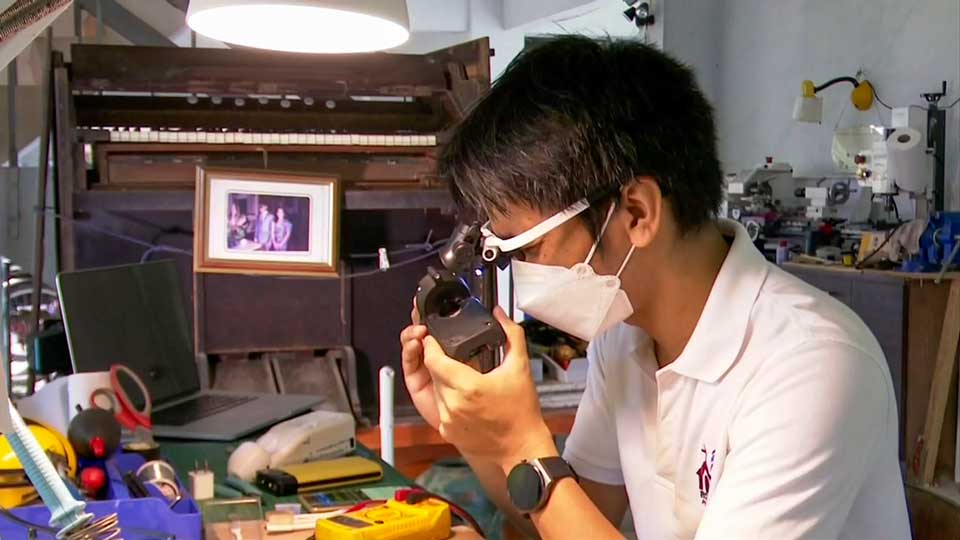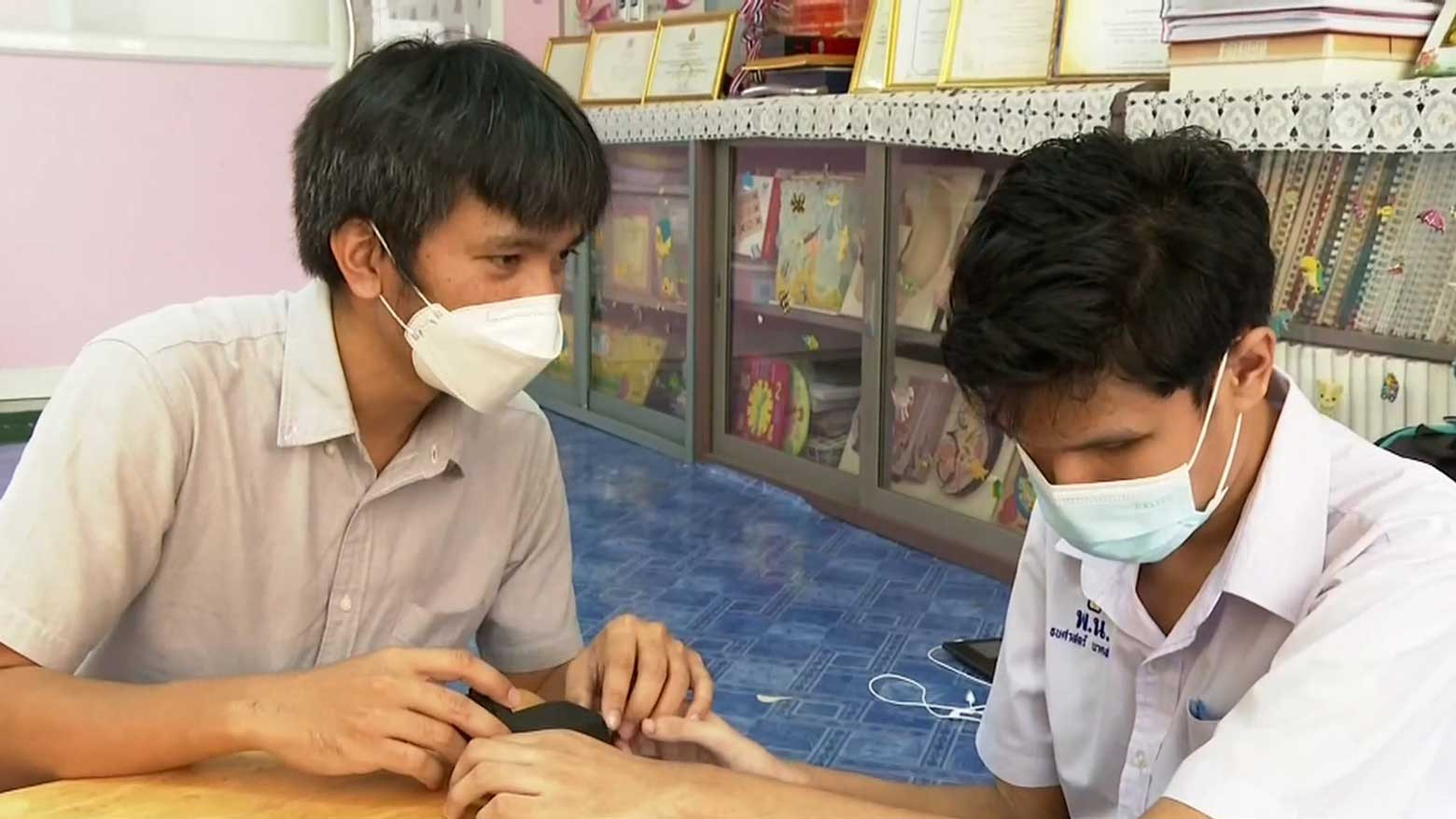In the city of Nonthaburi, near Bangkok, Thanasat Naksanong is listening intently to an online chemistry class. On a shared screen, the teacher shows the periodic table, and the 19-year-old slumps in his chair, knowing the rest of the class will be impossible for him.
Thanasat is blind and autistic, but in line with Thai education policies, he attends a regular high school. That has always offered up some difficulties, but when classes moved online last year, the hurdles grew even higher.
He was no longer able to rely on a teaching assistant, Braille textbooks or other learning aids he had access to at the school. His online homework assignments came in a format he was unable to comprehend.
"With online learning, I can't use the documents or images teachers send me," he says. "I miss learning in the classroom. At least the teachers were nearby, and I could always call on them for help."

Thanasat is one of 1,700 high school students with visual impairments in Thailand. The country has two million people with disabilities and less than one percent of them will enter higher education.
A high-tech hope
Engineer Songpakorn Punong-Ong knows more than most about the problem. His late father Prayat, himself visually impaired, helped established a foundation dedicated to improving the education system for blind children.
Songpakorn was determined to follow in his father's footsteps and has spent the last five years developing prototypes of a device that can scan documents, online or offline, and turn them into Braille. Users hold the device over a text, and the Braille appears on a touchpad.

He says he hopes it will help students with special needs through the uncertain times that lie ahead, and increase their access to quality education.
"I believe that reading is a basic act of accessibility to all knowledge," he says. "With this device, I want to lift their quality of life and give them greater confidence in their learning capabilities."
Watch Video 03:35
When classes went remote, Songpakorn traveled nationwide to let students with visual impairments test out his prototypes. Most had never used a Braille device of any kind before.
Thanasat was one of them. He says the device was a revelation. It was more than just a learning aid, but a tool that renewed his hope for the future. "I love it so much! It can definitely bring me towards my dream career as a language teacher. I'm happy to have been introduced to it," he says.
Over the next three years, engineer-turned-entrepreneur Songpakom hopes to commercialize and distribute the product in Thailand and overseas. He wants visually-impaired children to be equipped with a learning aid that enables equal access to education.

